|
Now that spring is officially here, I am starting to hear people complain about their seasonal allergies. Somehow, allergies to natural parts of our environment like pollen, grass and ragweed has become accepted as normal and part of many peoples' lives. Instead of being seen for what they are, an inappropriate immune response that can be remedied, allergies are viewed by the medical community and sufferers alike as life-long sentences for sneezing, wheezing, itchy eyes and more. But this is not the truth. Seasonal allergies, and in the same vein, asthma, do not have to be seen as a forever diagnosis; there is a way to help improve your symptoms, or get rid of them altogether. If you experience seasonal allergies, your body is having a histamine response to something, like pollen, that is not inherently harmful. This is due to an immune system that is not functioning properly. In order to get the histamine response and immune system to perform as it should, you must take a multi-faceted approach, as the immune system being out of balance is usually due to multiple factors. Here are 5 foods and other remedies that I recommend for people who suffer from seasonal allergies and asthma. These 5 recommendations are based on supporting a healthy immune response, which requires healing the gut and balancing the microbiome, getting the HPA (hypothalamic-pituitary-adrenal) axis in balance and managing stress, promoting a normal histamine response and getting plenty of antioxidants. The time to start protecting yourself from allergies is now. If you are prone to allergies, you no longer need to fear the beginning of spring, when you would rather be spending time outside picnicking, foraging, or hiking instead of sneezing. You can empower yourself by starting to incorporate these strategies before symptoms begin and get your immune system into balance so you can actually enjoy being outdoors during these beautiful spring days! 1. Fermented Foods Allergies are, at their core, a microbiome issue. Adding in fermented foods is one of the best ways to increase the number of good bacteria in your digestive tract and, truly, the entire body. The sinuses and lungs are lined with mucous membranes that are home to beneficial bacteria as well, so adding fermented foods not only improves the gut, but also the microbiome in these areas that directly affect allergy symptoms. In addition to supporting a healthy immune response, a robust microbiome and healthy gut also leads to less inflammation, which also contributes to the allergy response. My general guideline is to have something fermented at every meal, and to aim for a diversity of fermented foods. Choose from lacto-fermented sauerkraut, pickles, kim chi, yogurt, kefir, kvass, kombucha, raw apple cider vinegar or your favorite ferment. If allergies have been a chronic problem for you, consider adding in a probiotic supplement for extra microbiome support. In addition to fermented foods, an overall diet that supports gut health and the microbiome is essential in battling allergies and asthma. Incorporate other foods that support the gut like bone broth, raw dairy, digestive bitters, and prebiotic fiber from sources like fruits, vegetables, legumes, and properly-prepared whole grains, which feeds the good bacteria and promotes their growth. Keep your inflammatory response healthy with ginger, turmeric, omega 3 fats from wild-caught fish, fat-soluble vitamins from places like organ meats, and limiting processed sugar and other foods. 2. Stinging Nettle Nettle leaf is a traditional herbal remedy for seasonal allergies. Not only is it rich in minerals, which can support a healthy immune system and inflammatory response, but it acts as a natural anti-histamine. Because the nettle plan itself actually contains histamine, it promotes a healthy histamine response, unlike an over-the-counter drug that only treats symptoms. Nettle has been shown in clinical trials to improve allergic response, so science has finally proven what herbalists have always known--I love when that happens! I like to have nettle tea regularly around the beginning of spring. Even though I don't experience seasonal allergies, I want to keep my histamine response on its toes and prevent getting allergies in the future. A nice allergy tea blend combines nettle leaf with peppermint, sage, and rosemary, which all have cooling, astringent effects that can help the sinuses, along with elderberry or elderflower, for their immune supporting properties. You can also eat young nettles once they pop up in the spring (harvest with gloves, of course), and add to stir-fries, soups, kraut, curries or sauces. 3. Balance the HPA Axis If you are looking to improve your allergy symptoms, then addressing stress and the adrenals (or more accurately, the HPA axis) is essential. A heightened stress response, where your body is releasing more cortisol than normal, will lead to increased inflammation and depressed immune function. Also, disruption in the HPA axis can lead to compromised gut health, which also affects allergy symptoms, so dysfunction in the stress response is a double whammy during the spring. Balancing the hormones in the hypothalamic-pituitary-adrenal axis, along with the thyroid, can be challenging and complicated, depending on different life and health factors. However, there are some basic steps you can begin to take to start to improve your allergies. Stress management, which may include mindfulness and meditation practices, or even counseling, is essential. You also have to ensure lots of good sleep, moderate exercise without over-training, good hydration, and limiting stimulants like sugar and caffeine. Adequate nutrient intake, including unrefined sea salt, good fats, proper amounts of protein and appropriate amounts of carbs (this usually means not going low-carb), and keeping blood sugar balanced will help to meet your physical needs to lessen any stress on the body. Using adaptogenic herbs can also be beneficial in nourishing your adrenal system. Ashwagandha is one of my favorite herbs to help create a healthy stress response, but I also like tulsi, licorice, astragalus, rhodiola, eleuthero and reishi as adaptogens when I need extra herbal support for stress, be it physical or mental/emotional. 4. Vitamin C and Quercetin Keeping with the theme of immune support and promoting a healthy inflammation response, other ways to improve allergy symptoms are with vitamin C and quercetin. Quercetin is a bioflavanoid found in some fruits and vegetables, especially in the skins, that has been proven to improve allergy symptoms. This, along with vitamin C, act as potent antioxidants. These provide immune support and act as anti-inflammatories as well. Getting adequate vitamin C during allergy season is critical, so upping your intake of vitamin C-rich foods like citrus, bell peppers and cabbage will help meet your needs. Supplementing with "superfoods" like acerola cherry, amla, rosehips and spirulina can also add extra vitamin C. Quercetin can be found naturally in citrus, apples, onions, berries, and cruciferous vegetables. However, the amount found in foods is small, so if allergies are a real struggle for you every year, then supplementing with quercetin could be helpful in order to get a more therapeutic dose. Along with vitamin C and quercetin, getting plenty of antioxidants from other sources can help with immune and inflammation responses as well. Zinc, vitamin A, vitamin E, and selenium are all nutrients that act as antioxidants. Eating a well-rounded diet that includes organ meats, red meat, nuts and seeds, olive oil, avocados, fish and shellfish, and sprouted or soaked whole grains will ensure these nutrient needs are being met. 5. Raw Local Honey
The more I learn about raw honey, the more I think it may be magical. As far as treating allergies, raw honey has long been a folk remedy for these symptoms. It is thought to be beneficial because it contains pollen, since it is a product of bees, which may be part of why many find it helpful. It is important that the honey be local to where you live in order to help you with your seasonal allergies, as you are getting your body used to the allergens in your particular area. Studies on its use are limited, and much of the evidence supporting the use of raw honey for allergies is anecdotal, but it may be useful nonetheless, especially when used in conjunction with these other strategies above. Of course, if you have bee or honey allergies, then use the other strategies above and do not use honey for your allergies. Aside from the potential pollen content, the reason raw honey is useful during allergy season is because of its immune-supporting antioxidant content. If you are prone to allergies, supporting your body's immune response with a small amount of raw, local honey daily may prove helpful to you. Drizzle it on your sourdough toast with pastured butter, use it in a switchel combined with ginger and raw ACV, or stir it into your nettle tea for a super allergy-fighting combination this spring.
0 Comments
Leave a Reply. |
Brine & Broth
I am a gut health-focused nutritionist and online health coach based in Southwest Wisconsin. My recipes and philosophies center around traditional, nutrient-dense foods that support robust gut health. Archives
May 2022
Categories |
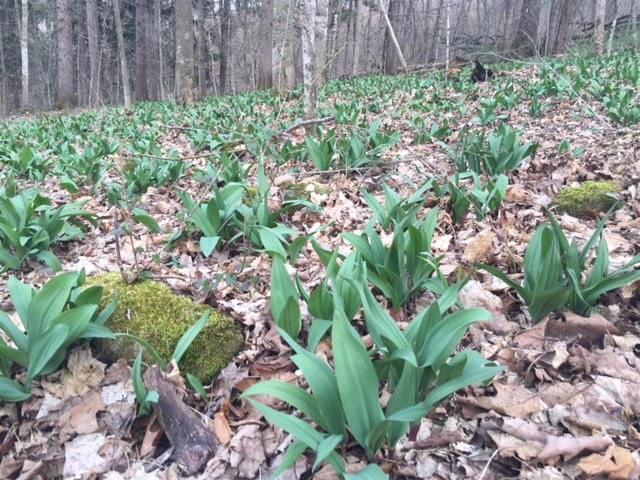
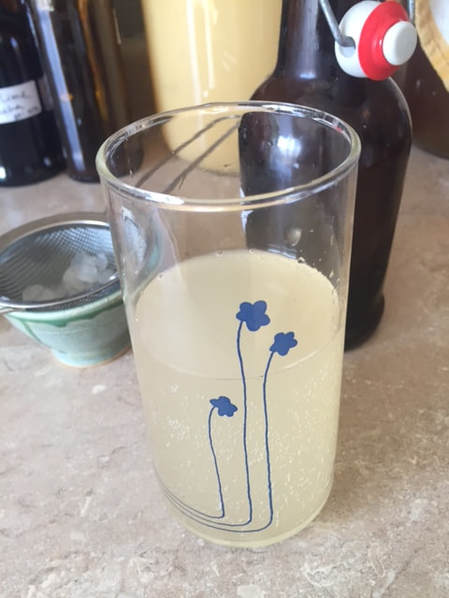
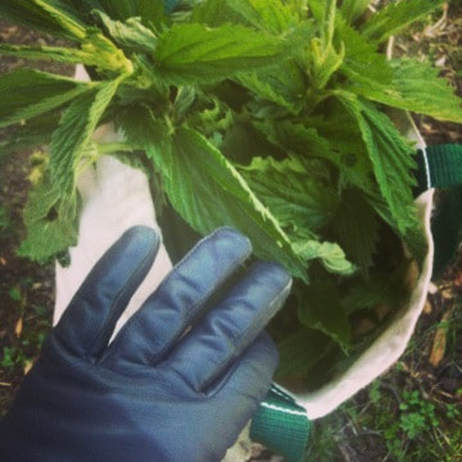
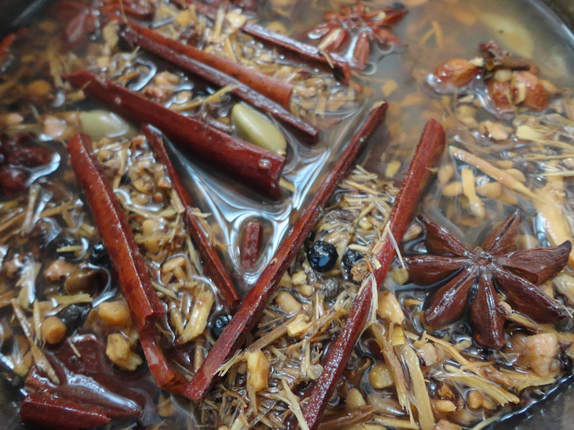
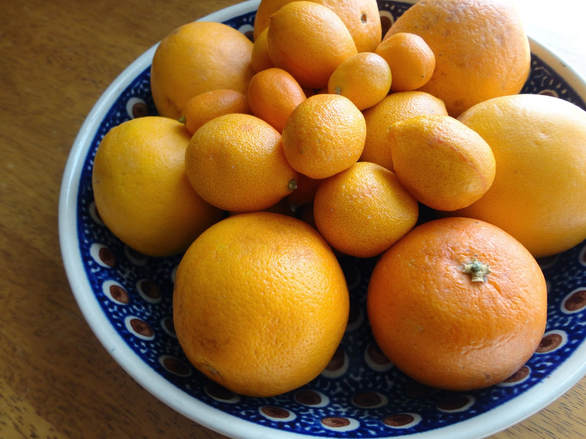
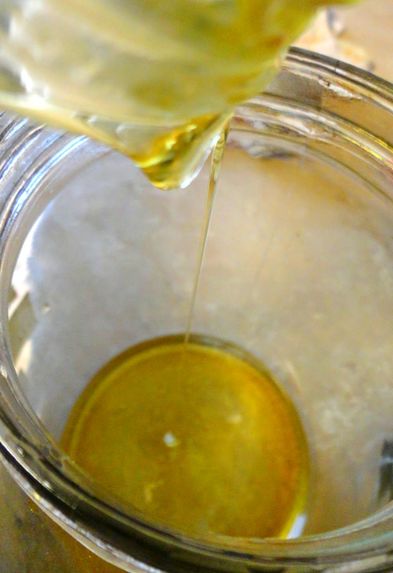

 RSS Feed
RSS Feed
